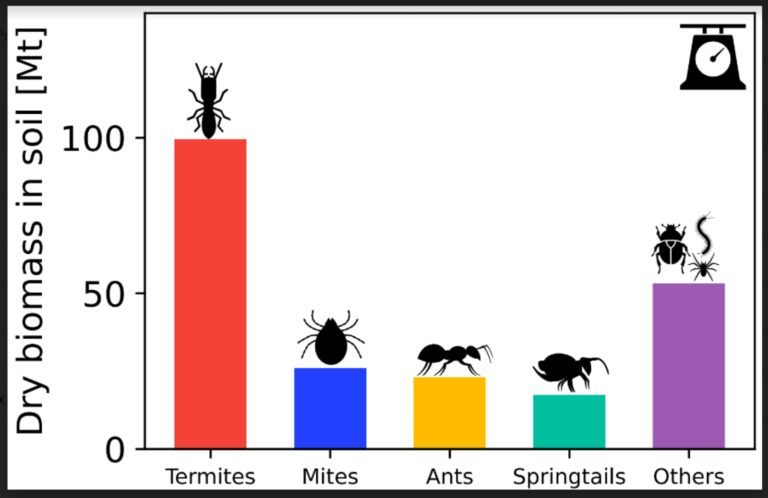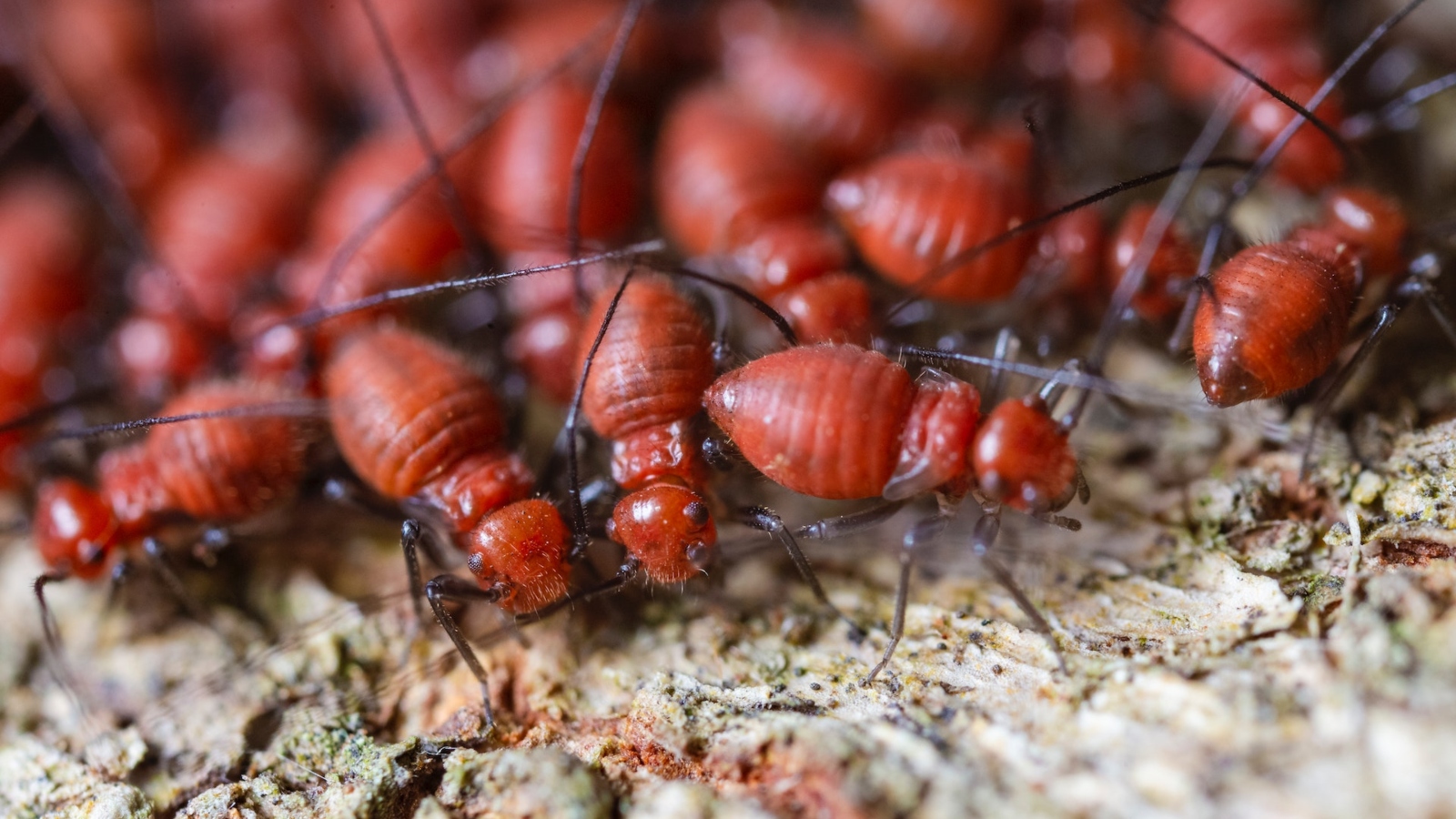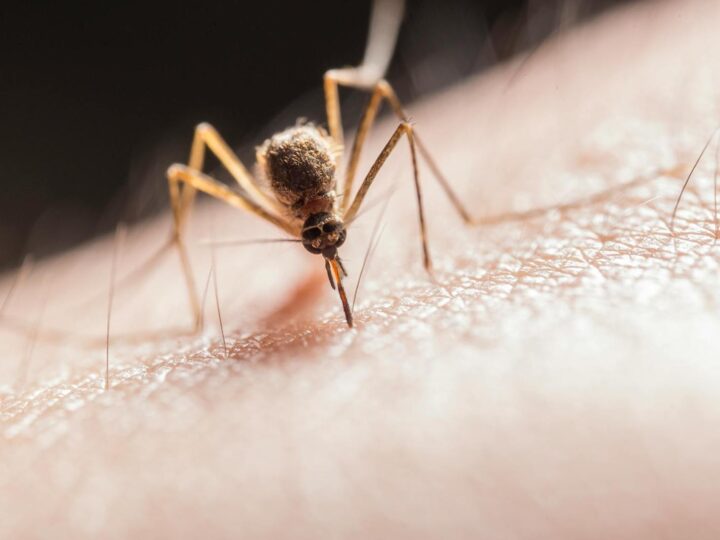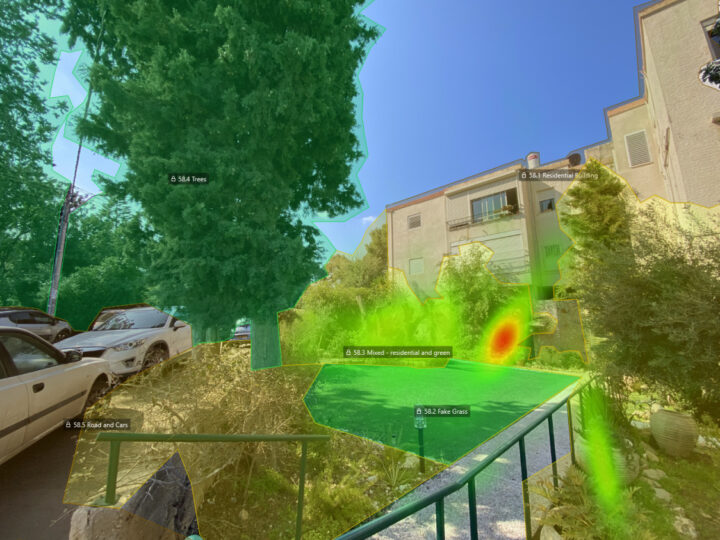More than a million species of arthropods –cold-blooded creepy-crawlies including all insects — crawl and buzz around us outdoors and indoors, aboveground and underground, in our plumbing systems, in our food and on our bodies.
Like them or not, they do essential tasks like pollinating our crops, aerating farmland and sustaining an enormous diversity of predators from warblers to wolverines.
Yet despite arthropods’ crucial importance to the environment and humanity, and amid concerns that some of these populations are dwindling, scientists did not know how many are really out there and how much they weigh collectively.
Researchers at Israel’s Weizmann Institute of Science now offer answers to these basic questions in a study published in Science Advances.
A team headed by Prof. Ron Milo calculated that the total number of terrestrial arthropods is about 1 × 1019 (10 quintillion, or 10 billion billions) of individuals and that their total biomass, or collective weight, is about 1 billion tons.
That is roughly the same as the weight of all people (about 400 million tons) and all farm animals (about 600 million tons) combined.
“Arthropods have been described as ‘the little things that run the world’ because of their central role in multiple ecological processes. We must take them into account if we’re to fully understand humanity’s impact on the planet and the possible consequences of climate change,” said Yuval Rosenberg, who led the study in Milo’s plant and environmental sciences lab along with Yinon Bar-On.

“Quantifying arthropod populations establishes a baseline against which we can measure future changes to the arthropod communities and how these changes, in turn, could affect global processes,” Rosenberg explained.
Underground creatures rule
The researchers gathered data from thousands of observations conducted over the years at some 500 survey sites around the world. These sites represent various biomes, ranging from rain forests to deserts, and also agricultural areas.
The scientists examined data on arthropod biomass both below and above the ground, for example on plants.
The study shows that the bulk of terrestrial arthropods’ biomass belongs to creatures that live underground – including springtails and mites.
Social insects that live in colonies account for half of the mass of underground arthropods: Termites and ants constitute 40 and 10 percent of that category, respectively.

As for aboveground arthropods such as butterflies, ants, beetles, grasshoppers and spiders, most of their biomass is probably found in tropical forests.
“This research offers the general public a number of insights,” said Milo, whose lab in recent years has led several studies that map the global biomasses of various species groups.
“The figure corrects the impression that we’re dealing with infinite, inexhaustible arthropod populations. Despite their broad distribution, that is not the case. Arthropods are strongly impacted by human and climatic influences, which in turn makes our ecological systems vulnerable,” Milo said.
“Therefore, arthropod populations’ decline across the globe calls for monitoring their situation carefully. A broad, quantitative view can help us assess how our ecological systems may change, and how this might affect our health, economy, agriculture and quality of life.”

















